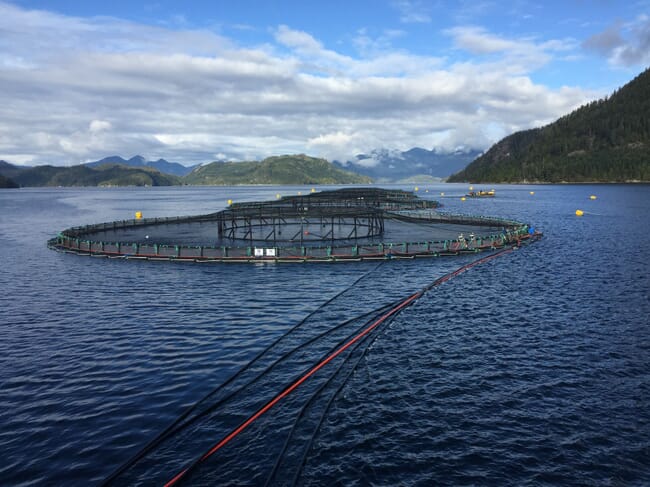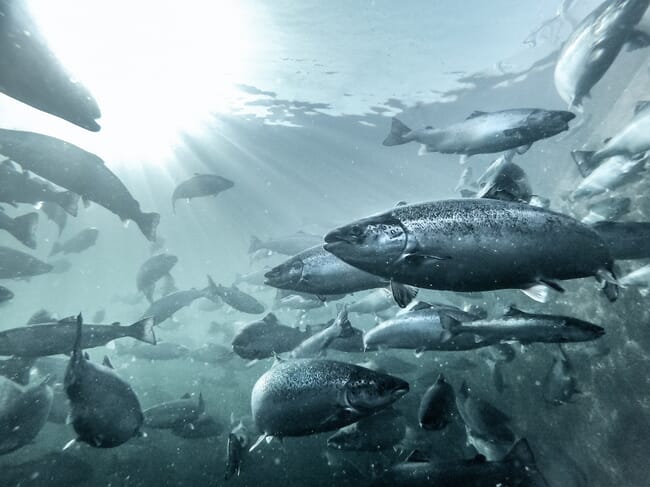
The BC Salmon Farmers Association says that recent media statements from anti-aquaculture campaigners are contrary to data and evidence © Grieg Seafood
According to the trade body, “recent statements issued to Vancouver media from anti-salmon farming campaigners are contrary to data and evidence.”
The BC Salmon Farmers Association says that Bob Chamberlin, a campaigner who has been outspoken against salmon farming in British Columbia for many years, “stepped over the line with his latest inaccurate statements to media.”
“In his eagerness to ride the wave of good news about the potential strong returns of many species of Pacific salmon returning to rivers in BC this year, Mr Chamberlin has severely misrepresented historical data and relied on speculation to try and prove his unwavering belief that there is a relationship between wild salmon returns and salmon farms,” says Ruth Salmon, interim executive director at the BC Salmon Farmers Association.
“His soundbites may sound simple – but his facts are simply wrong.”
In several appearances on Vancouver radio, newspapers and television news, Mr Chamberlin speculated this week that the closure of some salmon farms in the Broughton Archipelago area in 2020 will result in a strong return of pink salmon returning to the Ahta river this year to spawn. His press release claimed that this is “compelling evidence” that salmon farms are a “primary cause” of declines in wild salmon.
“However, the facts are there is no causative link, let alone a correlation, related to salmon farm activity and salmon returns,” says Ruth Salmon. “Pink salmon returns are very volatile, so much so that one can cherry-pick a single river in any year and make up a story to support their belief.”
The trade organisation, which represents over 70 businesses involved in British Columbia’s fish value chain, released recent data on the Ahta river, pink salmon and local aquaculture operations.
- An average of 19,291 pink salmon have returned to the Ahta river over the last decade in the “even” years (pink salmon return in two-year cycles).
- 907 salmon returned in 2020 – a relatively low return that mirrored the coast-wide low return of most all species of Pacific salmon (Mr Chamberlin incorrectly states this number as 200). 11 salmon farms were active during the outmigration (moving from rivers to open sea) for these salmon (March 2019).
- A record-high return of 68,871 pink salmon returned in 2014. A total of 12 salmon farms were active in the area during this outmigration (March 2013).
- A total of 11 salmon farms were active during the outmigration for this year’s (2022) return (March 2021). Returning populations for this year have yet to be confirmed by fisheries experts, but early reports suggest strong returns of pink and Sockeye salmon may occur in many regions of BC.

Salmon migration follows different cycles, leading to fluctuations when counting individual fish © Aker Biomarine
“For many years, we’ve frustratingly been witness to anti-salmon farming campaigners going to media early with speculation and anecdotes to influence negative headlines about salmon farming in British Columbia,” adds Ruth Salmon. “The facts – that never receive the same exposure from media as the criticisms – have not once supported these allegations.”




